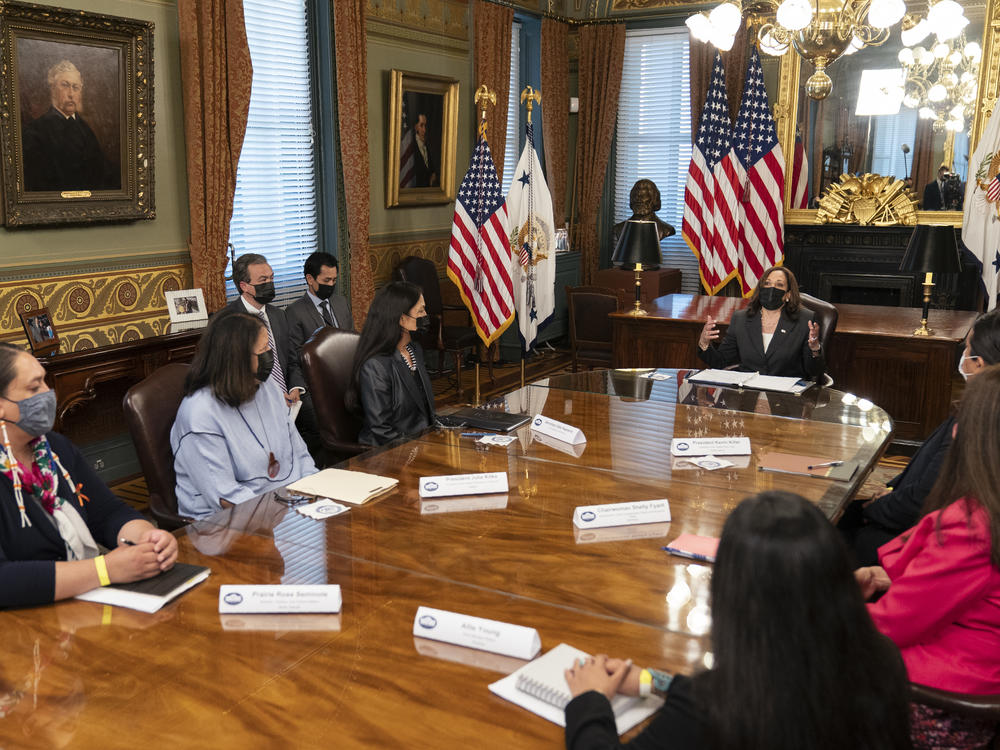Section Branding
Header Content
Native Americans face more barriers in voting. The White House suggests these changes
Primary Content
In an effort to expand voting access to Native American communities, the Biden administration released a report Thursday outlining the barriers indigenous voters face in the election process, which includes additional steps and recommendations the administration will take to combat existing restrictions on the right to vote.
The report was a result of an Interagency Steering Group on Native American Voting Rights that President Biden announced in March 2021, as part of an executive order he signed to expand access to the ballot.
"For far too long, members of Tribal Nations and Native communities have faced unnecessary burdens when they attempt to exercise their sacred right to vote. Native voters often have to overcome language barriers, a lack of accessibility for voters with disabilities, cultural disrespect and outright hostility, geographically remote residences, and persistent poverty — conditions that have only been exacerbated by the COVID-19 pandemic," the White House said on Thursday.
On the top of the list of recommendations the administration outlined was for Congress to pass the John Lewis Voting Rights Advancement Act, which includes the Native American Voting Rights Act and the Freedom to Vote Act as well.
The report notes that states can also pass legislation that incorporates protections from the Native American Voting Rights Act on their own, without having to wait for Congress to take action.
Additional recommendations included having the U.S. Postal Service consider adding routes and offices in areas serving Native communities and adding more language assistance.
The White House says the report is "just a beginning" and that more work with agencies across the government will be working to implement the report's recommendations.
For example, the Department of the Interior announced Thursday that it will designate Haskell Indian Nations University in Kansas and the Southwestern Indian Polytechnic Institute in New Mexico as voter registration agencies. Both schools are department-operated.
"Tribal nations have played a significant role in influencing the contours of American democracy, yet systemic barriers continue to disenfranchise Indigenous people and impede a free and fair electoral process," Secretary Deb Haaland said in a statement. "The Interior Department is committed to defending the right to vote, which includes increasing access to voter registration and engaging young people in our democratic system."
The Interior Department also said they are getting the White House report translated into six different Native languages to make it more accessible. The report will be translated into Navajo, Yup'ik, Ojibwe, Cherokee, Lakota and Native Hawaiian.
Copyright 2022 NPR. To see more, visit https://www.npr.org.

